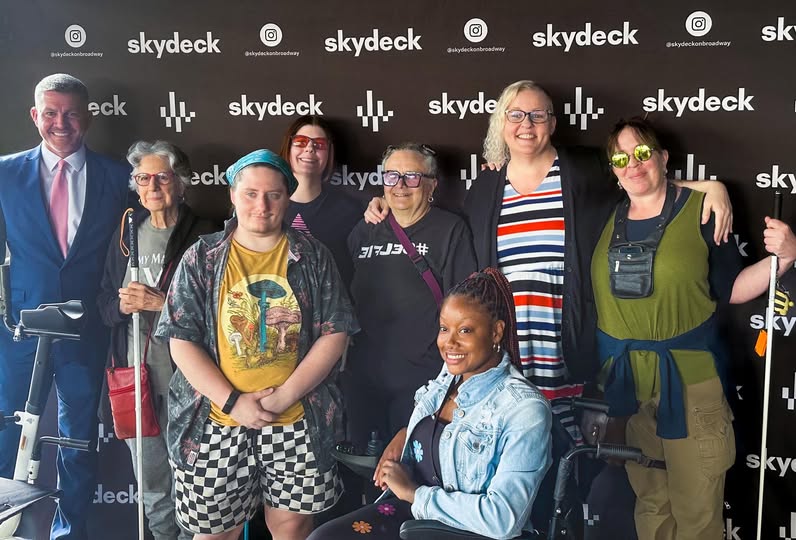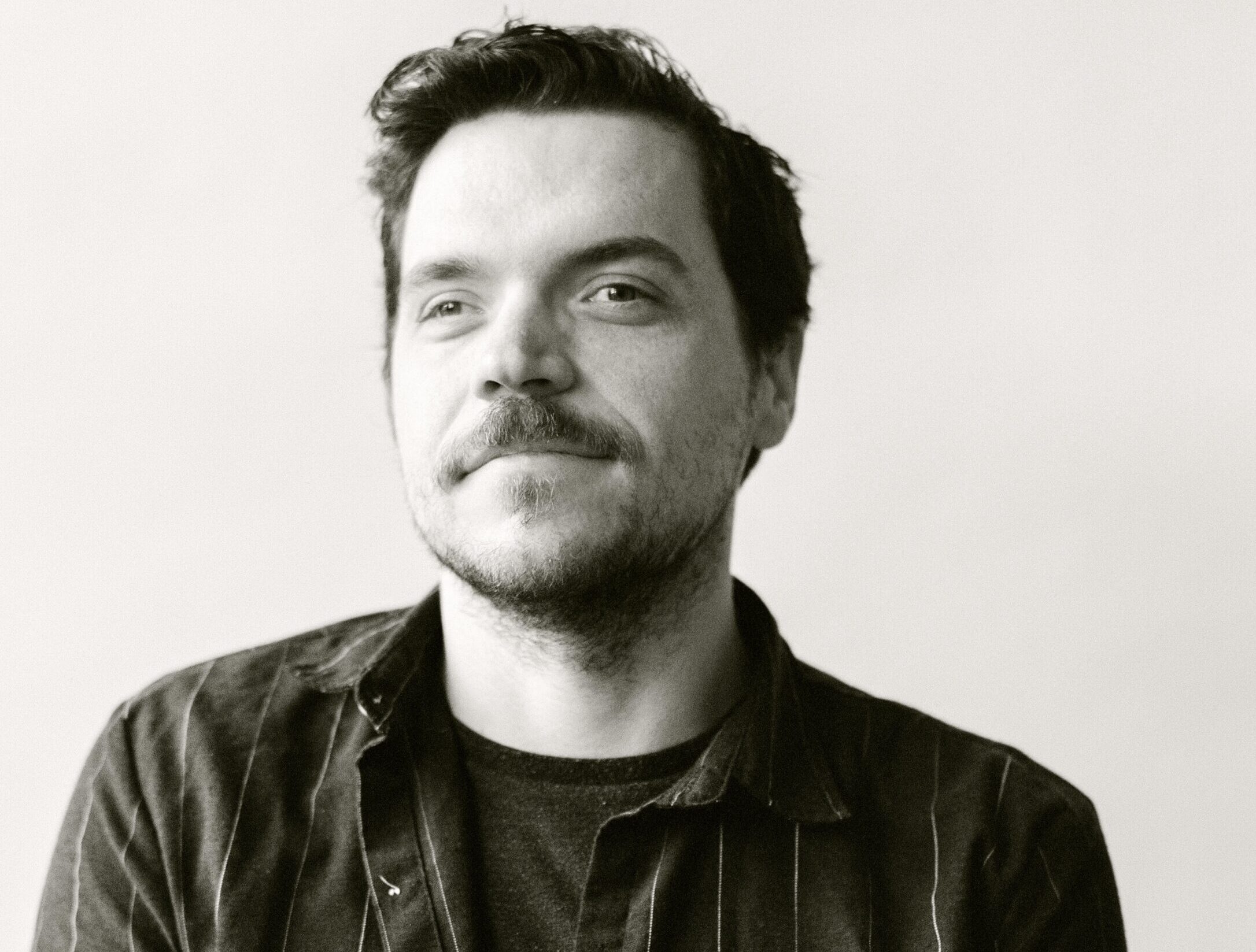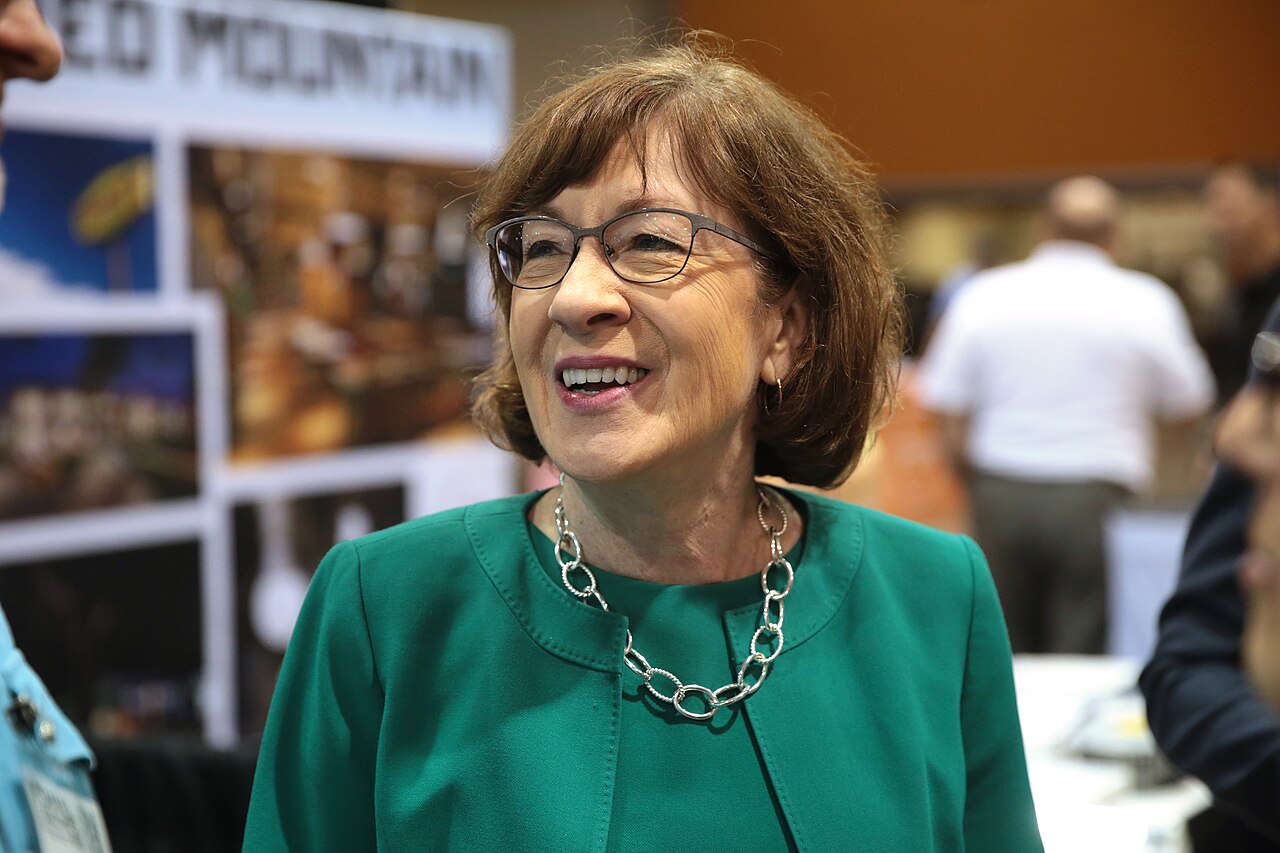
Dr. Cynthia George — better known around Nashville’s punk scene as Dr. CynCorrigible — is impossible to miss. They’re six feet tall, sport a mohawk, and carry themselves with the conviction of someone who’s seen multiple systems fail and chose to rebuild them.
A social work professor at Tennessee State University, Dr. Cyn is also a musician, a brain injury survivor, and a longtime lover of live shows. “I was born on the rock block,” they tell DJA, referring to Elliston Place, the street once pulsing with Nashville’s best punk and rock venues. “I grew up listening to some of the best live music in the world. It’s part of my culture and identity to go out and enjoy it.” They formed the punk rock band Dr. Cyn and the Graduates Rise performing in venues across town, some more accessible than others.
That love of nightlife — and the barriers to accessing it — sparked Disabled to the Front, a new movement they co-founded to make Nashville’s nightlife more inclusive for people with disabilities.
The name riffs on the Riot Grrrl call of the early ’90s — “girls to the front” — a rallying cry for women to claim spaces in punk venues that often felt unsafe. “We’re doing the same thing,” Dr. Cyn said. “People with disabilities never get the opportunity to be front and center. We’re changing that.”
For Dr. Cyn, the fight is personal. After a car accident left them with chronic pain, complex migraines, and limited mobility, their relationship with nightlife changed. “I used to stand guard along the edge of mosh pits,” they said, “ to make sure the pit stayed contained. Now it’s not safe for me to be even near a pit.”
Their advocacy combines that punk spirit with academic prowess — and a touch of rebellion. “I’m a Ph.D. level social worker,” Dr. Cyn said with a laugh. “So quite frankly, I sh*t national models. It’s part of my autism.”
Disabled to the Front launched in January 2025 as a joy-fueled party — part celebration and part protest. The group works alongside Nashville’s night mayor Benton McDonough through the Mayor’s Office of Nightlife, a relatively new role created in some major cities, to address accessibility in the city’s nightlife. “We just wanted to party,” Dr. Cyn says. “That’s a form of self-advocacy too. The right to party.”
But behind the fun is serious work. As Nashville prepares to host the 2034 Special Olympics, Dr. Cyn is helping lead an ADA citywide audit to make sure the city’s ready not just for visitors but for its own residents.
“Most ADA transition plans don’t include private businesses,” they explained. “Venues that lease their space have less control to make modifications. Many don’t even own their parking lots. We want to help those venues become accessible, not shut them down, you know?” Especially so since those independent businesses and smaller music venues keep punk rock music alive. They add: “Rock music wouldn’t exist without those independent venues.”
Barriers go beyond ramps and doorways. “Transportation is a huge issue,” they said. “We need more on-demand rides and regional options at night. All the transportation services for Disabled people are tied to the county budget, and so people that live just over the county line that want to come to party in Nashville can’t get here.. And so we’re looking at creating some regional transportation agreements to subsidize disabled travel across county lines.
Then there’s smaller stuff that piles up — staff confiscating mobility aids, ostensibly for safety reasons, or inaccessible ticket sales websites. “Every venue has a different threshold for risk,” Dr. Cyn told DJA. “Some are more afraid of non-Disabled people suing them than they are of being sued for discrimination by Disabled people. That’s the tension we have to unpack.”
Disabled to the Front focuses on collaboration, not confrontation. “We’re building relationships and allies with venues where there’s safety for Disabled people while also bringing them business,” they said. The group is exploring tech-based fixes like NaviLens, a QR-style navigation system that could make nightlife more accessible for visually impaired residents.
Through it all, Dr. Cyn insists accessibility isn’t just about compliance — it’s about joy. “There’s a dignity of risk,” she says. “Disabled people deserve to experience nightlife, to connect, to take up space, to have fun. That’s what we’re fighting for. Disability justice includes the right to dance, the right to belong, the right to party.”
More DJA Coverage
There is a dearth of coverage about the hundreds of thousands of people, including 21,000 children, who...
By
January 15, 2026
When I started working in media in 2009, at a music publication, I didn’t have the knowledge and skills I...
By
January 13, 2026
This story originally appeared at The Sick Times. The federal Department of Health and Human Services (HHS) recently recognized...
By
January 8, 2026


